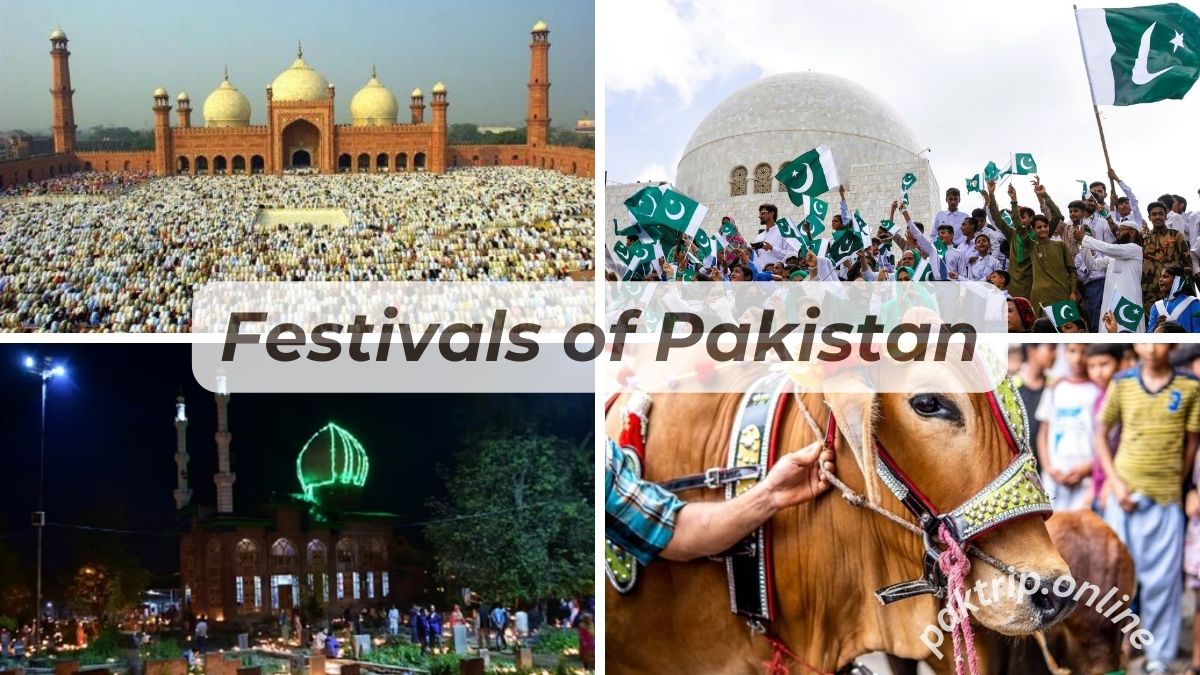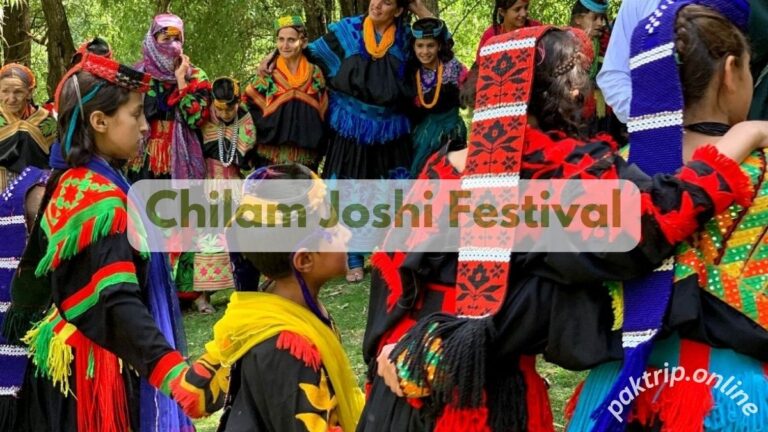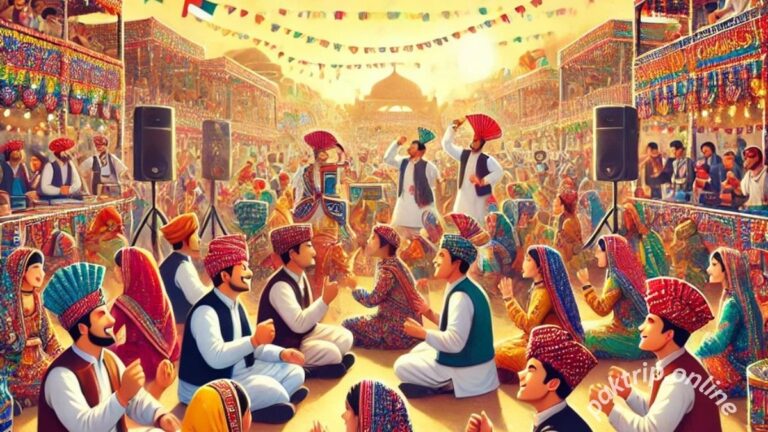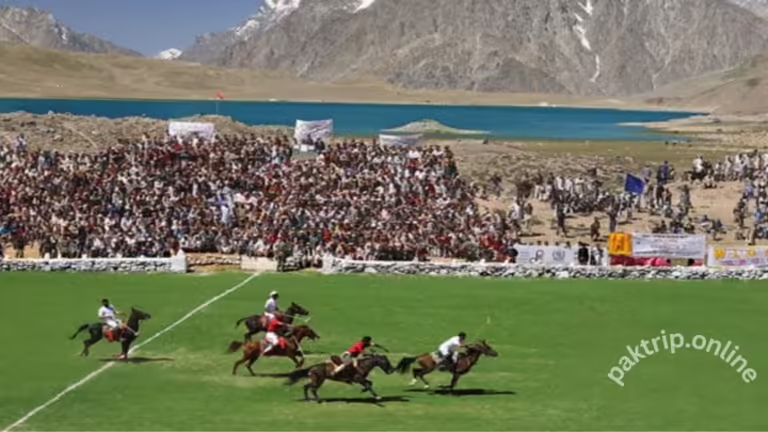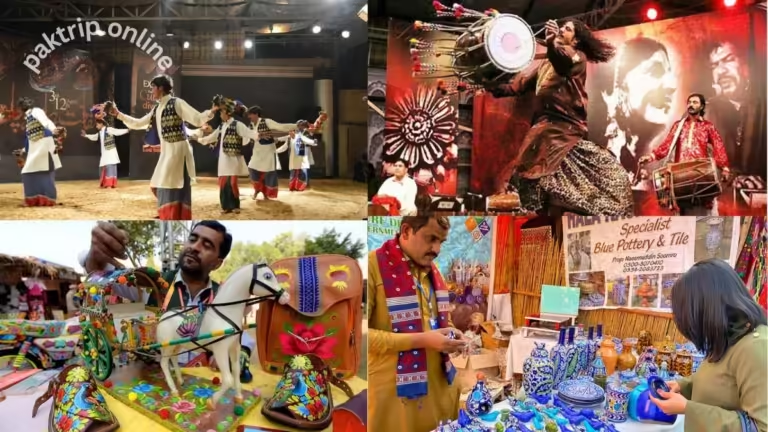10 Vibrant Festivals of Pakistan: A Cultural Journey
Pakistan is a land of rich cultural diversity and deep-rooted traditions, where festivals of Pakistan play an essential role in shaping the social fabric of the country. These celebrations, whether rooted in religious beliefs, regional customs, or national pride, bring people together to celebrate life, unity, and shared heritage. From the colorful bazaars during religious festivities to the grand parades on national days, the Festivals of Pakistan offer an unforgettable experience for both locals and visitors alike. Here’s an overview of some of the most important festivals celebrated throughout Pakistan.
Table of Contents
1. Eid ul-Fitr: A Celebration of Blessings
Eid ul-Fitr is celebrated at the end of Ramadan, the holy month when Muslims fast from sunrise to sunset as a practice of spiritual growth and self-control. This joyous festival takes place on the 1st of Shawwal, the Islamic lunar month that begins after Ramadan concludes. Eid is a joyous celebration that brings families and communities together for prayers, charity, and shared meals.
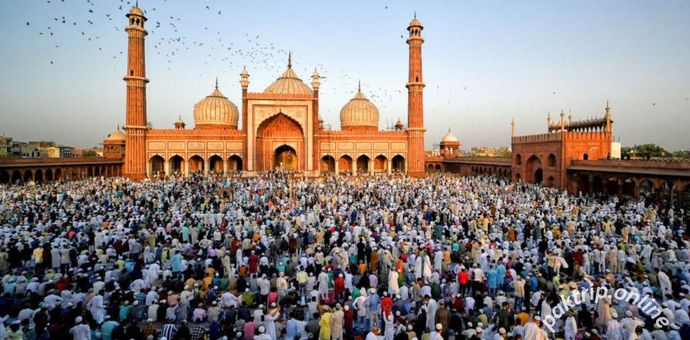
On the morning of Eid, mosques are filled with worshippers offering special prayers, while homes are busy preparing sweet dishes like sheer khurma and other traditional treats. The day is a time for reconnecting with loved ones, visiting friends, and spreading kindness. Many people give to the less fortunate, ensuring the spirit of generosity and gratitude shines brightly throughout the celebration.
2. Eid ul-Adha: The Festival of Sacrifice
Eid ul-Adha, also known as the Festival of Sacrifice, is observed during the Islamic month of Dhu-al-Hijjah, marking the culmination of the annual pilgrimage of Hajj. The festival honors Prophet Ibrahim’s (Abraham’s) willingness to sacrifice his son Ismail in obedience to Allah’s command, an act that was interrupted when Allah replaced Ismail with a ram.
This significant occasion involves prayers, animal sacrifices, and acts of charity. Families traditionally sacrifice animals such as goats, sheep, cows, or camels, distributing the meat into three parts: one for the family, one for friends, and one for the less fortunate. The festival emphasizes the values of selflessness, compassion, and community bonding.
3. Shab-e-Barat: A Night of Prayers and Forgiveness
Shab-e-Barat is an important night in the Islamic calendar, observed on the 14th night of Shaaban. This sacred night is a time for Muslims to engage in prayers, reflect on their actions, and seek forgiveness for their past mistakes. It is believed to be a night of blessings when God’s mercy and compassion are abundant.
In many parts of Pakistan, the night is marked by vibrant fireworks and the sharing of sweets among friends and neighbors. The festival is not only about prayer but also about fostering community ties and reinforcing the values of charity and self-purification.
4. Pakistan Day: Honoring the Nation’s Founding
Pakistan Day, observed on March 23, is another important national event. It commemorates the historic Lahore Resolution passed in 1940, which laid the foundation for the creation of an independent Pakistan. This day also marks the adoption of Pakistan’s first constitution in 1956, making it a celebration of both the country’s history and its identity as an Islamic republic.
The day’s central event is a grand military parade in Islamabad, showcasing the strength and capabilities of Pakistan’s armed forces. National awards and medals are presented to distinguished citizens, and various patriotic events are held to honor the sacrifices of Pakistan’s founders. The day is a source of national pride, reminding Pakistanis of their rich heritage and the importance of unity and progress.
5. Independence Day: Celebrating Pakistan’s Freedom
Independence Day, celebrated on the 14th of August each year, is a proud national holiday in Pakistan that marks the country’s liberation from British rule in 1947. On this day, the streets come alive with festivities as people hoist the national flag, sing the national anthem, and take part in parades and fireworks.
The capital city, Islamabad, hosts the central celebrations, where political leaders, military personnel, and citizens gather for a formal flag-hoisting ceremony. Across the country, patriotic displays such as the decoration of buildings with flags and lights add to the festive atmosphere. Independence Day serves as a reminder of Pakistan’s struggle for freedom and its journey toward self-determination.
6. Defence Day: Honoring the Nation’s Defenders
Defence Day, observed annually on September 6, honors the courage and sacrifices of the Pakistani Armed Forces in defending the nation. It commemorates the events of the 1965 Indo-Pakistan War and recognizes the nation’s resolve to protect its sovereignty. On this day, the armed forces display their latest equipment, including tanks, missiles, and fighter jets, in a spectacular public show of strength.
The day includes various ceremonies, such as the changing of the guard at Mazar-e-Quaid in Karachi, alongside televised programs that highlight the sacrifices made to safeguard Pakistan’s sovereignty and security. Defence Day is a day of national unity, where citizens come together to honor their armed forces and reflect on the nation’s resilience.
7. Nowruz: Welcoming the Spring
Nowruz, the Persian New Year, is celebrated in parts of Pakistan, particularly in the regions bordering Afghanistan and Iran. This ancient festival, which marks the arrival of spring, is observed on the vernal equinox around March 21. For over 3,000 years, communities across Central Asia, the Caucasus, and parts of the Middle East have celebrated Nowruz as a symbol of renewal, peace, and harmony.
Nowruz celebrations include the cleaning and decorating of homes, visiting family and friends, and enjoying traditional foods. The day emphasizes the renewal of both nature and spirit, promoting peace, solidarity, and unity among people from all backgrounds.
8. Shandur Polo Festival: A Unique Sporting Event
The Shandur Polo Festival is one of Pakistan’s most iconic and exciting cultural events. Held annually in the high-altitude Shandur Pass (12,500 feet above sea level) in the Gilgit-Baltistan region, this festival is a celebration of the ancient sport of polo. Polo, introduced to the region centuries ago, is played with much enthusiasm during the festival, bringing together teams from Chitral and Gilgit to compete in this exhilarating sport.
Apart from the thrilling polo matches, the festival also showcases traditional music, dance performances, and cultural activities. Visitors can enjoy a wide array of attractions, including paragliding, folk music, and local handicraft displays, making it a popular event for tourists looking to experience the diverse cultural heritage of the region.QQ
9. Kalash Festivals: Celebrating the Culture of the Kalasha People
The Kalash people, an indigenous ethnic group in the mountainous Kalash Valley, celebrate several unique festivals throughout the year. These festivals Chilam Joshi (spring), Uchal (summer), and Choimus (winter) are deeply rooted in the Kalasha culture and involve rituals, feasts, dancing, and community gatherings.
During these festivals, the Kalash people honor their gods and spirits, offer sacrifices, and engage in traditional dances. The festivals are also a time for the Kalasha youth to select their marriage partners. The Kalash Festivals are a vibrant showcase of the community’s rich heritage, attracting visitors who wish to learn about this ancient and colorful culture.
Read More: Chilam Joshi Festival: Colorful Celebration in Kalash Valley
10. Urs of Data Ganj Bakhsh: A Sacred Gathering in Lahore
The Urs of Hazrat Ali Hujwiri, also known as Data Ganj Bakhsh, is one of the most significant Sufi events in Pakistan. Held annually at the Data Darbar shrine in Lahore, this event attracts millions of devotees who come to pay homage to the 11th-century Sufi saint.
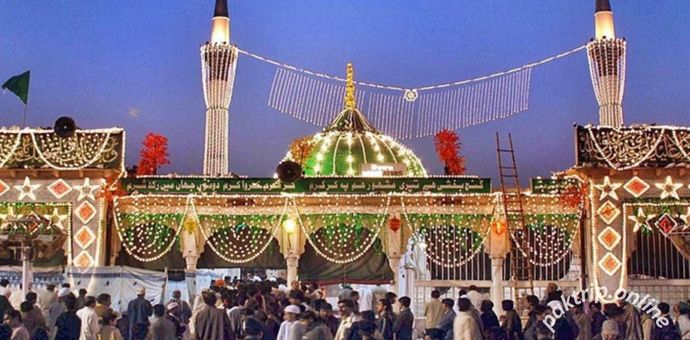
During the Urs, the shrine is decorated with lights, and the air is filled with the sounds of qawwali (Sufi music) and the prayers of the faithful. The occasion is marked by acts of charity, food distribution, and spiritual reflection, reinforcing the values of devotion, humility, and peace.
Conclusion:(Festivals of Pakistan)
Festivals of Pakistan, from religious occasions like Eid and Nowruz to cultural celebrations such as the Shandur Polo Festival, showcase the country’s deep traditions and cultural diversity. They offer a glimpse into the vibrant life of Pakistan, where people come together to celebrate their heritage, reinforce community ties, and honor the values that unite them. For both locals and visitors, these festivals of Pakistan are a reflection of the country’s spirit full of joy, unity, and the power of shared experiences. Whether through prayer, sports, or cultural performances, the festivals of Pakistan are an essential part of the nation’s identity, making them an unforgettable experience for anyone who
